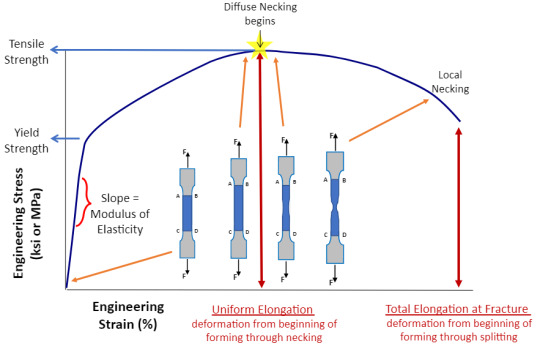#application support engineers
Explore tagged Tumblr posts
Text
Mobile applications have become an essential part of our everyday lives, offering convenience, entertainment, and answers to various problems. However, the job does not stop after an app is created and released. Moreover, there are many Application Maintenance Company where App maintenance is a continuous process that ensures the app runs smoothly, is safe and continues to meet the changing demands of users.
#Application Maintenance Company#App maintenance#mobile app maintenance#Application Support Services#Application Support#Techsaga Corporations#App Maintenance Experts#application support engineers#API implementations
0 notes
Text
Telegram Bots That Do More Than Just Chat - Atcuality
At Atcuality, we believe a bot should be more than just functional—it should be impactful. Our team of developers and designers build Telegram bots that combine utility with personality. Whether it’s a shopping assistant, event notifier, or educational quiz master, we make sure your bot reflects your brand’s tone and goals. Right in the middle of our process is our expertise in Telegram Bot Creation, allowing us to build robust systems that run reliably and scale as your audience grows. Our solutions are built with best practices in security, user experience, and performance. And the best part? You don’t have to worry about a thing—we handle setup, testing, deployment, and even updates. If you're ready to turn passive followers into active participants, Atcuality is your go-to partner.

#cash collection application#augmented reality#blockchain#virtual reality#web app development#amazon web services#web design#ai applications#digital marketing#web developers#telegram#telegram bot#telegram channel#software design#software development#software engineering#software company#software testing#information technology#digital transformation#software services#software solutions#software security#software support#software consulting#applications#app#mobile application development#ai powered application#application development
0 notes
Text
Smart Financial Management with Atcuality’s Cash Collection Tools
Businesses need reliable tools to manage their financial operations efficiently. Atcuality offers advanced fintech solutions, including an AI-powered cash collection application that ensures smooth and timely payment collection. This innovative tool helps businesses automate billing, generate instant payment reports, and send notifications to clients, reducing payment delays. With a secure platform that supports multiple payment options, companies can offer a hassle-free experience to customers while maintaining steady cash flow. Whether you’re a startup or an established enterprise, Atcuality’s technology-driven solutions are designed to support your financial goals with ease and security.
#search engine optimisation company#search engine optimisation services#emailmarketing#search engine marketing#digital services#search engine ranking#seo#search engine optimization#digital marketing#seo company#cash collection application#software testing#software company#software engineering#software#software development#developers#applications#opensource#software solutions#software services#software support#software security#software design#software developers#application development#application modernization#application process#app#app development
1 note
·
View note
Text
Custom AI-Powered Applications for Modern Businesses - Atcuality
Artificial intelligence is reshaping the way businesses operate, and Atcuality is here to help you harness its potential. We specialize in developing custom AI powered application that automate workflows, enhance decision-making, and improve customer interactions. Whether you need AI for predictive analysis, process automation, or virtual assistance, our expert team ensures seamless integration with your existing infrastructure. Our AI solutions are scalable, secure, and tailored to your business needs, providing you with a competitive advantage. Stay ahead in the digital era by leveraging AI to drive efficiency, accuracy, and innovation. Partner with Atcuality for smarter, AI-driven solutions today!

#artificial intelligence#ai applications#augmented and virtual reality market#digital marketing#website development#augmented reality#emailmarketing#web design#web development#information technology#ai generated#ai art#software development#software engineering#software company#software testing#applications#developers#technology#software solutions#software services#software support#software security#website optimization#website services#website security#website seo#website design#website developer near me#web developers
0 notes
Text
Boost Your Online Visibility with Expert SEO Services
In today’s competitive digital landscape, having a website isn’t enough—you need a strong SEO Services strategy to ensure your business ranks higher in search results and attracts the right audience. At BPM Tech Solution, we provide cutting-edge solutions to improve your website’s visibility and drive organic traffic.
Why SEO Matters for Businesses
Search engines are the gateway to online success. Without proper Search Engine Optimization, businesses struggle to gain traction and miss out on potential customers. Our tailored SEO strategies focus on improving rankings, increasing engagement, and driving sales.
Our Key SEO Services
On-Page SEO Optimization for Better Rankings
Optimizing your website’s content and structure is essential for search engine success. Our On-Page SEO Optimization includes optimizing title tags, meta descriptions, headings, and images to enhance search engine rankings and improve user experience.
Local SEO Services to Dominate Your Area
For businesses targeting local customers, our Local SEO Services ensure that your business appears in local searches, Google Maps, and directories. This helps you connect with customers in your region and increase foot traffic.
Technical SEO Solutions for a High-Performing Website
A slow, unoptimized website can hurt your rankings. Our Technical SEO Solutions focus on site speed optimization, mobile-friendliness, structured data implementation, and fixing crawl errors to enhance search engine performance.
SEO for Small Business Growth
Small businesses often struggle to compete with larger enterprises. Our SEO for Small Business strategies are designed to help startups and small companies improve their online presence without breaking the bank.
Organic Traffic Growth Through Content & Strategy
Driving organic traffic requires a mix of great content, strong backlinks, and effective keywords. Our Organic Traffic Growth services help you attract high-quality visitors who are genuinely interested in your products or services.
Ecommerce SEO Strategies for Online Stores
Ecommerce businesses need specialized SEO techniques to rank higher on product searches. Our Ecommerce SEO Strategies optimize product descriptions, categories, and technical elements to increase visibility and conversions.
SEO Keyword Research for Targeted Marketing
Choosing the right keywords is crucial for a successful SEO campaign. Our SEO Keyword Research services help identify high-traffic, low-competition keywords that maximize your website’s potential.
Why Choose BPM Tech Solution for SEO?
Experienced Team: Our SEO specialists have years of experience optimizing websites for businesses of all sizes.
Customized Strategies: We develop unique SEO plans tailored to your specific industry and goals.
Proven Results: Our strategies focus on measurable outcomes, including increased rankings, traffic, and conversions.
Comprehensive Support: We offer continuous SEO monitoring and adjustments to keep your website performing at its best.
Get Started with SEO Today!
Don’t let your competitors outrank you! Invest in professional SEO Services from BPM Tech Solution and watch your business grow. Whether you need Local SEO Services, Technical SEO Solutions, or Ecommerce SEO Strategies, we’re here to help you succeed.
#bpm tech solution#digital marketing solution#marketing solutions#SEO Services#Search Engine Optimization#On-Page SEO Optimization#Local SEO Services#Technical SEO Solutions#SEO for Small Business#Organic Traffic Growth#Ecommerce SEO Strategies#SEO Keyword Research#online technical support services#Security Services#cybersecurity#IT online Services#application services
0 notes
Text
#tailwind#reactjs#nextjs#software engineering#software#developers#applications#frontenddevelopment#frontend developer#javascript#nodejs#typescript#redux.#portfolio#code#coding#engineering#colorful#support#support me
1 note
·
View note
Text
WP Engine is a well-known managed WordPress hosting provider.
It offers a range of features and services tailored specifically for WordPress websites, making it a popular choice among businesses, bloggers, and developers who seek reliable, high-performance hosting solutions.

#Managed WordPress Hosting:#security#and reliability.#automated updates#and staging environments.#Genesis Framework and StudioPress Themes:#Access to the Genesis Framework for building fast#secure#and SEO-friendly websites.#Includes over 35 StudioPress themes for customization and design flexibility.#Global Edge Security:#Advanced security features including DDoS protection and Web Application Firewall (WAF).#Managed threat detection and prevention.#Content Performance:#Tools and analytics to measure and optimize content performance.#Helps improve site speed and SEO rankings.#Dev#Stage#Prod Environments:#Separate development#staging#and production environments for better workflow management.#Allows for testing changes before pushing them live.#Automated Migrations:#Easy migration tools to transfer existing WordPress sites to WP Engine.#Assisted migrations for a smoother transition.#24/7 Customer Support:
0 notes
Text
#best uk job search portal#career advancement#Career advice#career development#employment process#Glassdoor#industry trends#interview preparation#Job Application#job finding#job listings#job market insights#job opportunities#job portals#job postings#job recommendations#Job search#job search advice#job search assistance#job search engines#job search filters#job search guidance#job search platform#job search resources#job search strategies#job search support#Job Search Tips#job search tools#Job Seekers#jobsbuster
0 notes
Text
Tawfik needs to buy tent covers and other necessities.
My other promos
Updated: Nov 29
Member(s): @dev-tawfik (current), @devtawfik (shadowbanned), @tawfikblog, @90-tawfik (shadowbanned)
Verification: @/90-ghost
Payment methods:
Gfm for education: PayPal, Venmo, Google Pay, credit/debit (donation match $10 USD). Focus on Kofi instead until at least mid-December
Kofi for survival (mentioned here): PayPal, credit/debit. Focus on this until at least mid-December
Tawfik is a Palestinian currently taking online classes at an Egyptian university. His Kofi campaign needs to reach $3,000 to buy tent covers and other necessities for his family (see here). Any additional funds in the gfm and Kofi will go towards the next semester's payments and family care respectively.
More info:
Now he is focusing on getting his Kofi to $3,000 (fees included) to get his family tent covers and other survival needs. See here.
Nov 27: Tawfik has reached the Kofi goal to buy flu medication and a vaccine, so we are now focusing entirely on the gfm. His goal of $10,050 by Nov 28 (hard deadline) for his international student fees were also reached on the same day.
He plans to fundraise for this year's remaining academic fees (which will be significantly less than what we already raised), and hopes that the war will end by the next year so he can get a job and pay himself.
Update Nov 20: More details here. Tawfik has fallen ill with the flu and won't be online much. He needs USD $228 (fees included) for medications and a vaccine. This requires him to reach 71% of his goal on Kofi (which is specifically for non-education related needs). At the same time, he needs $10,050 in his gfm by Nov 28 to pay off his international student fees.
Update Nov 15: We reached the halfway goal for the international student fee of USD $9,050 by Nov 15. Now going for the full fee of $10,050 by Nov 28.
Update Nov 6:
Tawfik got an extension to Nov 30 to pay the international fee. New goals of USD $9,050 by Nov 15 and $10,050 by Nov 28 (to account for transfer time) were set. The final goal was reduced with some backup money. Grades will be withheld until payment is made.
Update Nov 5:
Currently, it seems impossible to raise the required funds ($10,050 - $10,150) by Nov 13. Tawfik has emailed his school to negotiate for more time.
Update Oct 29:
Now @dev-tawfik.
The next goal was $9,250 to pay off international student fees (due Nov 13, see math section below) that Tawfik just found out about.
The family urgently needed $1,000 for healthy food (Tawfik's father has health problems and needs vegetables).
Tawfik initially wanted to use the gfm money for education only as promised, but had to add the sum to the campaign goal (a total of $10,250) because the Kofi he made solely for his family wasn't receiving many donations early on.
There were some issues with the Kofi taking a few weeks to transfer funds, but that's been resolved. It is now for support of Tawfik's family and transfers money relatively quickly.
From Oct 17-27, we fundraised to $7,200 to buy some food for the family. This food money will last roughly 2 weeks.
We are focusing back on international student fees and set a short-term goal of $8,862 in the campaign by Nov 3. There will be another small goal set after this date.
We need roughly $10,050 (an estimate) in the campaign by Nov 13 (hard deadline). Again, this isn't a concrete number and involves some usage of Tawfik's backup money.
Campaign details:
Tawfik is a software engineering student in Palestine trying to continue his education by enrolling in online classes at an Egyptian university.
He already raised roughly USD $2,500 in late July through a now closed Paypal campaign and paid the school as an application and reservation fee. This is nonrefundable.
We fundraised $4,113 (5200 - 1087) and paid off his tuition for the year on Oct 7
The gfm is meant for education only. To support the family, donate to the Kofi. It no longer faces issues with long transfer times.
Tawfik has some extra leftover funds from paying off the tuition, but it isn't much and is to be used for emergencies.
Oct 17: Tawfik bought his textbooks ($800 incl fees → $6,000 in campaign) and got a small discount for being Palestinian. This money saved went into his emergency funds.
Math:
Please let me know if I screwed up the calculation somewhere.
The transfer fee is assumed to be ~$50 per $600 earned. My bad in earlier calculations where I set it after the bank fee rather than before.
Textbooks: base $600
Funds left after:
Gfm for 40 donations: 570.6
~$50 transfer fee: 520.13
12% Bank fee: 458.13
To cover the funds lost to fees, we need an extra $200 (assumed 15 donations). After fees on that, it's only $166 (enough to cover the short-term goal)
So we need 600 + 200 = $800 for the textbooks.
This is $6,000 in the campaign.
Slightly outdated: International student fees: base $2,423
900£ = USD $1,180.93
60k EGP = USD $1,241.29
Funds left after:
Gfm fees for 160 donations: 2304.74
Transfer fee, ~$200: 2,104.74
12% Bank fee: 1852.17
To cover the funds lost to fees, we need an extra $800 (assumed 55 donations). After fees on that, it's only $625 (enough to cover the short-term goal)
So we need 2423 + 800 = $3,223 for the international student fee.
This is $9,223 10,223 in the campaign, rounded up to $ 9,250 10,250
The rate of ~$100 daily is sufficient to get us to this goal before the deadline of Nov 13 (this accounts for the 2 days needed for transfers)
5K notes
·
View notes
Text
Its rent time again, we're getting help but we still need to raise $600. We are are a family of two disabled trans women and a small cat (@rickybabyboy). We're working on multiple projects to help make the internet more hospitable, this month I built a single file application format for portable web applications and an engine to run them. Consider helping us so we can keep doing good work.

ID in image
$150/$600 raised
Venmo: AGIEF
Paypal: [email protected]
Ko-fi:
1K notes
·
View notes
Note
Is spider silk being as strong as steel another lie from childhood? Bc you're able to break it pretty easily on accident. Genuinely asking.
spider silk IS actually significantly stronger pound-for-pound than the same amount of steel, but only in one direction! and coincidentally, it's the same exact direction that got a bunch of people killed in a submersible last month.
see, when people talk about the "strength" of spider silk versus steel, they're specifically talking about tensile strength:

which is specifically the measure of the strength of a material when two forces are pulling at it from the ends, like when a steel cable is holding up a bridge support, or crane cargo:

or like when a strand of silk is supporting the entire spider.

that's tensile strength, baby!
but there's another type of strength that's very important to take into consideration when you're actually building things like bridges and submersibles, and spider silk and similar materials like carbon fiber are absolutely garbage at it! and that's compressive strength.
this is basically the inverse of tensile strength, where instead of being yanked at from both ends, the forces are crushing inwards at the material from both directions instead.

you can expect to see these kinds of forces involved in road surfaces, vehicle engines, and again, submersibles.
now steel and its more competent cousin titanium are fucking GREAT at compressive strength! the harder the outside forces are compressing them, the stronger the metals get.

NOT TODAY, FUCKERS
but strand-based materials like spider silk and, again, carbon fiber, are fucking garbage at this. they can take a certain amount of pressure, but each round with compressive forces snaps some of the strands that makes up the material! and those don't grow back, so basically you're just gradually reducing your poor overstressed carbon-fiber hull into a completely useless shell of shattered thread fragments over time as the strands of fiber that actually give it strength die off one by one.

and eventually, something's gotta give! and then people die about it.
this is why, even though spider silk IS stronger than steel in one specific way, we're never going to stop using steel in industrial applications and switch over to spider silk or carbon fiber full time. these materials all have their areas of use, and steel just covers a wider base of applications.

and don't even get me started on shear strength. we'll be here all damn day.
6K notes
·
View notes
Text
Revolutionize Customer Support with Telegram Bots - Atcuality
Tired of managing repetitive customer queries? Let Atcuality help you automate support with advanced Telegram Bot Creation solutions. Our bots provide instant, 24/7 responses, ensuring your customers receive timely and accurate assistance. Whether it's booking appointments, answering FAQs, or processing orders, our custom bots handle it all with precision. Integrated with AI and natural language processing, our bots understand user intent, improving response quality and customer satisfaction. With features like automated ticketing, real-time notifications, and seamless third-party integrations, your business can provide a smoother customer experience while reducing operational costs. Upgrade your customer service game with Atcuality’s smart Telegram bots!
#cash collection application#blockchain#digital marketing#web app development#web design#augmented reality#virtual reality#amazon web services#ai applications#web developers#telegram#telegram bot#software design#software testing#software engineering#software development#software#opensource#technology#applications#software company#software solutions#software services#software support#software security#ai powered application#mobile application development#app#application development#mobile app development
0 notes
Text
Innovative Solutions for Seamless Digital Transformation - Atcuality
Atcuality crafts tailor-made digital solutions that help businesses stay ahead in a competitive marketplace. With a team of experienced developers, designers, and digital marketers, we specialize in creating functional websites, high-performing mobile apps, AI-driven platforms, and immersive AR/VR experiences. Our solutions are built with precision and creativity to meet the unique needs of each client. One of our core services is Telegram Bot Creation, designed to automate customer engagement, streamline communication, and deliver instant support through highly interactive bots. These bots not only handle user queries but also execute complex tasks like sending alerts, integrating APIs, and providing real-time updates, making them invaluable for businesses seeking efficiency. Additionally, Atcuality offers digital marketing strategies, SEO optimization, and blockchain development services to ensure holistic digital growth. Choose Atcuality to empower your business with innovative technologies and expert-driven strategies.

#search engine marketing#emailmarketing#search engine optimisation company#search engine optimization#search engine ranking#seo#digital services#search engine optimisation services#digital marketing#seo company#telegram#telegram channel#applications#software#digital transformation#technology#software testing#software company#software engineering#software development#software solutions#software security#software services#software support#app development#app developers#app developing company#cash collection application#application modernization#application development
0 notes
Text
AI can’t do your job

I'm on a 20+ city book tour for my new novel PICKS AND SHOVELS. Catch me in SAN DIEGO at MYSTERIOUS GALAXY on Mar 24, and in CHICAGO with PETER SAGAL on Apr 2. More tour dates here.

AI can't do your job, but an AI salesman (Elon Musk) can convince your boss (the USA) to fire you and replace you (a federal worker) with a chatbot that can't do your job:
https://www.pcmag.com/news/amid-job-cuts-doge-accelerates-rollout-of-ai-tool-to-automate-government
If you pay attention to the hype, you'd think that all the action on "AI" (an incoherent grab-bag of only marginally related technologies) was in generating text and images. Man, is that ever wrong. The AI hype machine could put every commercial illustrator alive on the breadline and the savings wouldn't pay the kombucha budget for the million-dollar-a-year techies who oversaw Dall-E's training run. The commercial market for automated email summaries is likewise infinitesimal.
The fact that CEOs overestimate the size of this market is easy to understand, since "CEO" is the most laptop job of all laptop jobs. Having a chatbot summarize the boss's email is the 2025 equivalent of the 2000s gag about the boss whose secretary printed out the boss's email and put it in his in-tray so he could go over it with a red pen and then dictate his reply.
The smart AI money is long on "decision support," whereby a statistical inference engine suggests to a human being what decision they should make. There's bots that are supposed to diagnose tumors, bots that are supposed to make neutral bail and parole decisions, bots that are supposed to evaluate student essays, resumes and loan applications.
The narrative around these bots is that they are there to help humans. In this story, the hospital buys a radiology bot that offers a second opinion to the human radiologist. If they disagree, the human radiologist takes another look. In this tale, AI is a way for hospitals to make fewer mistakes by spending more money. An AI assisted radiologist is less productive (because they re-run some x-rays to resolve disagreements with the bot) but more accurate.
In automation theory jargon, this radiologist is a "centaur" – a human head grafted onto the tireless, ever-vigilant body of a robot
Of course, no one who invests in an AI company expects this to happen. Instead, they want reverse-centaurs: a human who acts as an assistant to a robot. The real pitch to hospital is, "Fire all but one of your radiologists and then put that poor bastard to work reviewing the judgments our robot makes at machine scale."
No one seriously thinks that the reverse-centaur radiologist will be able to maintain perfect vigilance over long shifts of supervising automated process that rarely go wrong, but when they do, the error must be caught:
https://pluralistic.net/2024/04/01/human-in-the-loop/#monkey-in-the-middle
The role of this "human in the loop" isn't to prevent errors. That human's is there to be blamed for errors:
https://pluralistic.net/2024/10/30/a-neck-in-a-noose/#is-also-a-human-in-the-loop
The human is there to be a "moral crumple zone":
https://estsjournal.org/index.php/ests/article/view/260
The human is there to be an "accountability sink":
https://profilebooks.com/work/the-unaccountability-machine/
But they're not there to be radiologists.
This is bad enough when we're talking about radiology, but it's even worse in government contexts, where the bots are deciding who gets Medicare, who gets food stamps, who gets VA benefits, who gets a visa, who gets indicted, who gets bail, and who gets parole.
That's because statistical inference is intrinsically conservative: an AI predicts the future by looking at its data about the past, and when that prediction is also an automated decision, fed to a Chaplinesque reverse-centaur trying to keep pace with a torrent of machine judgments, the prediction becomes a directive, and thus a self-fulfilling prophecy:
https://pluralistic.net/2023/03/09/autocomplete-worshippers/#the-real-ai-was-the-corporations-that-we-fought-along-the-way
AIs want the future to be like the past, and AIs make the future like the past. If the training data is full of human bias, then the predictions will also be full of human bias, and then the outcomes will be full of human bias, and when those outcomes are copraphagically fed back into the training data, you get new, highly concentrated human/machine bias:
https://pluralistic.net/2024/03/14/inhuman-centipede/#enshittibottification
By firing skilled human workers and replacing them with spicy autocomplete, Musk is assuming his final form as both the kind of boss who can be conned into replacing you with a defective chatbot and as the fast-talking sales rep who cons your boss. Musk is transforming key government functions into high-speed error-generating machines whose human minders are only the payroll to take the fall for the coming tsunami of robot fuckups.
This is the equivalent to filling the American government's walls with asbestos, turning agencies into hazmat zones that we can't touch without causing thousands to sicken and die:
https://pluralistic.net/2021/08/19/failure-cascades/#dirty-data

If you'd like an essay-formatted version of this post to read or share, here's a link to it on pluralistic.net, my surveillance-free, ad-free, tracker-free blog:
https://pluralistic.net/2025/03/18/asbestos-in-the-walls/#government-by-spicy-autocomplete

Image: Krd (modified) https://commons.wikimedia.org/wiki/File:DASA_01.jpg
CC BY-SA 3.0 https://creativecommons.org/licenses/by-sa/3.0/deed.en
--
Cryteria (modified) https://commons.wikimedia.org/wiki/File:HAL9000.svg
CC BY 3.0 https://creativecommons.org/licenses/by/3.0/deed.en
#pluralistic#reverse centaurs#automation#decision support systems#automation blindness#humans in the loop#doge#ai#elon musk#asbestos in the walls#gsai#moral crumple zones#accountability sinks
277 notes
·
View notes
Text
Since I was a kid, talking 5 or 6, my parents always told me it would be impossible to make a career in art and I remember thinking why can’t I be the exception? Why can’t you just support me and help me get there? I remember feeling on a gut level, that I had it in me I just needed the practice and investment.
To their credit they did initially support it. Until of course, they felt I had gotten too invested in my Sunday art class, and pulled me from enrollment.
Art was then something I did in secret, something I learned to feel ashamed of. I’d shove my drawings behind the couch to hide them. Lie about the time spent on art assignments. Feel shame at how only my art teachers ever had compliments for my work. But after I failed to get into the international baccalaureate program - a status symbol, I still woke up to my father ripping pages out of a notebook I had been sketching in, calling every single one trash.
Laughably, my dreams went from artist to animator to architect and finally settled on what could only make my parents proud - engineer. Each step a concession to their concerns until there was nothing left to concede.
“I’ve seen other peoples work, yours is nothing to even compare. You wouldn’t have gotten in.” Was all that was said after I submitted my final university applications.
Of course, after years of being forbidden to practice, of not receiving any support to pursue it, of course it was nothing to compare.
A topic that has come up a lot lately in my therapy sessions is this negativity I still feel towards art. If I feel bad that week due to poor engagement, I also feel shame at the loss of focus and misplaced priorities.
If I look at my work and think this is just awful, I then beat myself up not just for failing to make a good piece but for wasting time and for even caring about something like that. When art is useless why waste time trying to make it better.
But someone I met recently asked me why I didn’t quit my job right then and pursue this full-time.
I explained there were many reasons actually. The sense of instability I experience being one. Feeling beholden to the whims of an algorithm and a crowd terrifies me.
However, internally I felt disgust at their suggestion.
Today I realize, that perhaps at the bottom of all this shame, hatred, and loathing is grief. Grief that in the end my parents were right. That I couldn’t pursue this path. That try as I have, I squandered and missed.
I think I will never be allowed this. And it angers me. And it saddens me. Still I keep trying still I keep moving forward. Still I feel shame still I resist.
The same person then asked why all that mattered.
“I know how a true artist thinks and works, and I know myself. And I draw things to be pretty and safe and appealing. So I know I could never be a true artist.”
“No, you’re just a coward.”
“Yes. I am.”
#one of those long rambles#if theres grammar mistakes english isnt my first language idc if ive been speaking it for like a long ass time#idk whst a conjugation is or what commas are#i then went into therapy and told my therapist all about that guy#i was like CAN YOU UNDERSTAND THIS MAN#he doesnt care or money only for fame and clout#bc those are things quote money cant buy#dumbass bitch#and my therapist just sat there like#animal crossing noises bc im pretty sure he said something about it and i forgot
176 notes
·
View notes
Text
Here's Trump's next target — according to the tyrant's playbook | by Robert Reich
Trump is following Putin’s, Xi’s, and Orban’s playbook. First, take over military and intelligence operations by purging career officers and substituting ones personally loyal to you.
Next, subdue the courts by ignoring or threatening to ignore court rulings you disagree with.
Intimidate legislators by warning that if they don’t bend to your wishes, you’ll run loyalists against them. (Make sure they also worry about what your violent supporters could do to them and their families.)
Then focus on independent sources of information: the media and the universities. Sue media that publish critical stories and block their access to news conferences and interviews.
Then go after the universities.
. . . . . . . . . . . . . . . . . . . . . . . . . . . . . . . . . . . . .
Last week, Trump threatened in a social media post to punish any university that permits “illegal” protests. On Friday he cancelled hundreds of millions in grants and contracts with Columbia University.
This is an extension of Republican tactics before Trump’s second term. Prior to Trump appointing her ambassador to the United Nations, former Representative Elise Stefanik (Harvard class of 2006) browbeat presidents of elite universities over their responses to student protests against Israel’s bombardment of Gaza, leading to several presidents being fired.
Senator Josh Hawley (Stanford class of 2002 and Yale Law class of 2006) called the student demonstrations signs of “moral rot” at the universities.
But antisemitism was just a pretext.
JD Vance (Yale Law 2013) has termed university professors “the enemy” and suggested using Victor Orban’s method for ending “left-wing domination of universities.”
I think his way has to be the model for us: not to eliminate universities, but to give them a choice between survival or taking a much less biased approach to teaching. [The government should be] aggressively reforming institutions … in a way to where they’re much more open to conservative ideas.”
Trump is also targeting diversity, equity, and inclusion programs on university campuses.
. . . . . . . . . . . . . . . . . . . . . . . . . . . . . . . . . . . . . . . .
But of all Trump’s and Republicans’ moves against higher education, the most destructive is the cancelation of research grants and contracts. The destruction is hardly confined to Columbia and other suspected left-wing bastions.
Research universities depend on funding from the National Science Foundation and the National Institutes of Health.
Trump reportedly aims to slash the budget of the National Science Foundation by up to two-thirds. And he’s instructed the National Institutes of Health to no longer honor negotiated rates for “indirect costs” on grants that it administers — money that universities use for laboratory space and research equipment.
In defiance of court orders, Trump has largely maintained a freeze on NIH funding.
As a result, many of America’s great research universities have stopped hiring and are cutting Ph.D. programs — in some cases rescinding offers to accepted students.
. . . . . . . . . . . . . . . . . . . . . . . . . . . . . . . . . . . . . . .
Trump’s moves are consistent with the tyrant’s playbook, but they’re also jeopardizing America’s national security and competitiveness.
Trump speaks of putting America First, but his attack on the nation’s great research universities is ensuring that the U.S. comes in second — to China.
Although America has long been the global leader in scientific output, China is now surging ahead. Even before Trump’s cuts in research funding, China was projected to match U.S. research spending within five years.
China has already surpassed the U.S. as the top producer of highly cited papers and international patent applications. It now awards more science and engineering Ph.D.s than the U.S.
Tyrants close universities. Fascists burn books. Trump is destroying America’s most important asset — its innovative mind.
. . . . . . . . . . . . . . . . . . . . . . . . . . . . . . . . . . .
Robert Reich is a professor of public policy at Berkeley and former secretary of labor. His writings can be found at https://robertreich.substack.com/.
294 notes
·
View notes